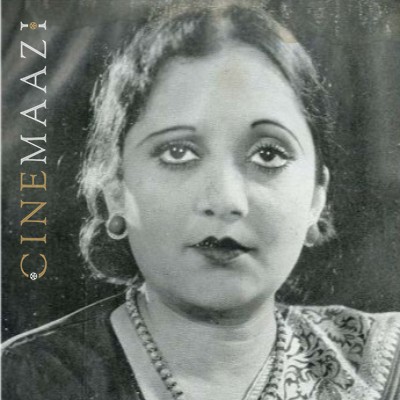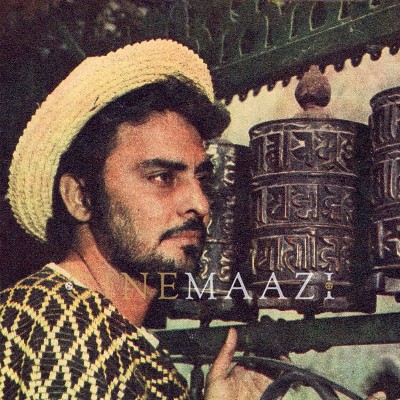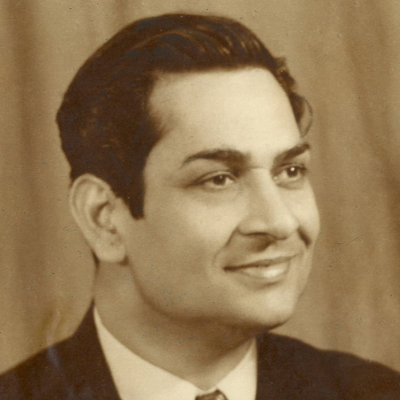Ajit Merchant
Subscribe to read full article
This section is for paid subscribers only. Our subscription is only $37/- for one full year.
You get unlimited access to all paid section and features on the website with this subscription.
Not ready for a full subscription?
You can access this article for $2 , and have it saved to your account for one year.
- Born: 15 August, 1922 (Bombay)
- Died: 18 March, 2011 (Bombay)
- Primary Cinema: Hindi
- Spouse: Nilamben
Music director Ajit Merchant scored music for as many as 250 stage productions in different languages, as well as for Hindi films such as Refugee (1948), Raj Kumari(1955), Indra Leela (1956), Chandi Pooja (1957), Ram Bhakta Vibhishan (1958), Sapera (1961), Challenge (1964), Lady Killer (1968), and Gujarati films like Kariyavar (1948), Divadandi (1950), Lagna Mandap (1950), and Bahuroopi (1969). His songs display a wide range of song compositions and orchestrations, styles and singers. Though largely unutilised for major film productions, many of his compositions remain evergreen. Ajit Merchant was honoured with the Lifetime Achievement award by Maharashtra Rajya Gujarati Sahitya Akademi in 2007.
He was born on 15 August, 1925 in Bombay, into a family that hailed from Bet Dwarka. He was introduced to music by his father, a criminal lawyer with a deep interest in classical music, who believed that every person should possess at least one skill to survive in life. Attending various concerts of musicians like Abdul Karim Khan, Ajit learnt music under Shivkumar Shukla. He started off as a drama artiste, and even received the Best Actor award in the Mumbai State Drama Festival for his role in Pragji Dosa's play Anahat Naad. He entered the field of music in 1945, when he was invited by noted Gujarati playwright and director C C Mehta, to score music on the All India Radio show Ek Dayro, in lieu of another music director who was unavailable on the said date. Merchant presented songs such as Ekvar ghogha jajo re gheriya, and Pandadi shi hodi, which impressed the AIR station director and led to his performing on radio. After leaving All India Radio, he became associated with the theatre group Navi Rangbhoomi, going on to compose music for more than 250 Gujarati, Hindi and Marathi stage plays.
Merchant made his foray into film music, when he started working as assistant to Ashok Ghosh, who was composing music for a film for Ranjit Movietone at the time. He got his first independent assignment as music director with Refugee (1948). Merchant also scored the music of the Gujarati film Kariyawar (1948). However, both films did not succeed at the box office, which probably led to Merchant not being considered for the A-grade films and instead being confined to smaller productions. He scored music for approximately eight Hindi films and nine Gujarati social films, one of which did not reach censor certification.
Ajit Merchant still managed to make a name with many of the songs he composed, which display the wide range of song compositions and orchestrations, styles and singers. These include Taari aankh no afini taara bol no bandhani from Divadandi (1950), which was composed by Merchant for his film produced by his production house, Neelam Films. Raj Kapoor, who was apparently present at the recording, congratulated Ajit Merchant on the song, predicting that it would be immortal. Many decades after the song was released, it remains special for successive generation. What’s more, Kapoor is also said to have used the base notes of the tune for the initial lines of his evergreen number Mera joota hai Japani from Shree 420 (1955).
Among Merchant’s popular songs are Laagi ram bhajan ni lagani laagi from Bahuroopi (1969) which was the maiden song of the famous Jagjit Singh, Ghanshyam gupchup gupchup bhatake bhatake from Dharati Na Chhoru (1970) rendered by Jagjit Singh and Suman Kalyanpur, and Roop tumhara aankhon se pi lun from Sapera (1961) sung by Manna Dey. Also memorable are his compositions Ujadi hui ishq ki duniya tere bagair from Refugee (1948), Panchhi gaane lage prabhati and Sun lo jiya ki baat from Indra Leela (1956), Koi lakh kare chaturai, Ek dharti ka Rajkumar, and Ae ji o ji kaho badi aaj ki daravani hai raat from Chandi Pooja (1957), Ritu raja ne teer chalaya from Ram Bhakt Vibishan (1958), Raat ne gesu bikharaye, and Bairi chhed na aise raag dil mein jaag uthe aag from Sapera (1961), Main bhi hun majboor sajan dil bhi hai majboor, Mohabbat mein kiya mujh ko badnam yun zamane ne, and Badle re badle re badle re from Challenge (1964), and Qatil hai teri har ada, Chacha ne chachi ko chandi ki chamchi se chutney chatai, and Auron ka chahera paon tera from Lady Killer (1968).
While his talent and capabilities were not fully utilised by the Hindi film industry, Merchant continued to find work and acceptance from theatre. Unfortunately, much of his work in theatre as well as during his long stint at AIR, including his work for ad film jingles and documentaries, has been lost.
On the personal front, Merchant was married to Nilamben.
Ajit Merchant passed away on 18 March, 2011. He was 86.











.jpg)



